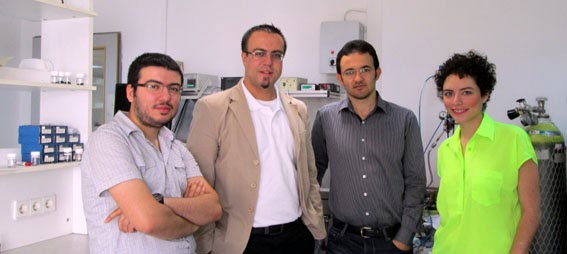General Motors and Bilkent Join Forces
General Motors (GM) Company, one of the global leaders of the automotive industry and the manufacturer of well-known brands such as GMC, Chevrolet, Buick and Cadillac, recently kicked off its very first research and development partnership in Turkey at Bilkent University. Through a joint research project between GM R&D headquarters in the US and Asst. Prof. Emrah Özensoy's research group in the Bilkent Department of Chemistry, next-generation catalytic converters will be developed for the fuel-efficient cars of the future.
The catalytic converter, a crucial component of any given car on the road today, is in charge of cleaning the toxic gases generated by the fuel combustion in the engine. Ironically, as modern cars become more fuel efficient, they also tend to generate more toxic gases such as nitric oxides. Therefore, in trying to get these next-generation cars into the global marketing pipeline as fast as possible, automotive manufacturers are hard pressed to find new ways to meet the associated environmental challenges.
As Dr. Özensoy explains, "Current catalytic converter technology relies on complex materials containing precious metals called platinum group metals, or PGMs, which comprise a significant portion of the manufacturing cost of a car. Furthermore, environmental regulations restricting exhaust emissions are becoming tougher every year. Thus, novel, functional and preferably simpler nanomaterials need to be designed that do not rely on PGMs."
Accordingly, Dr. Özensoy's research group teamed up with researchers at GM to investigate novel platinum-free nanomaterials with the potential to be used in new catalytic converters. These new nanomaterials are not only expected to assist in reducing automotive manufacturing costs and improving fuel economy, but are also anticipated to limit global environmental pollution by suppressing the chemicals responsible for smog formation, ozone depletion and toxic airborne microparticulates. Dr. Özensoy states that thanks to the highly competitive research infrastructure at Bilkent and the funding from GM, the preliminary results of the ongoing joint project seem very promising, and the project partners are already in the process of exploring possibilities to expand the scope of the collaboration.
